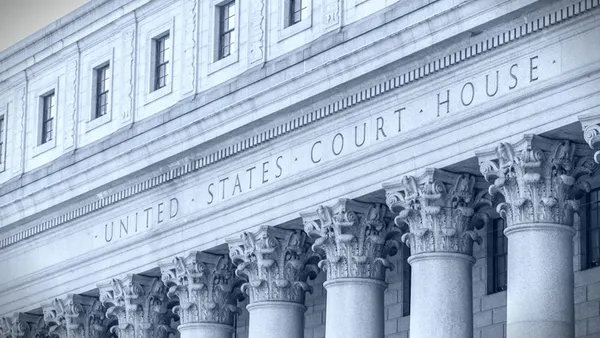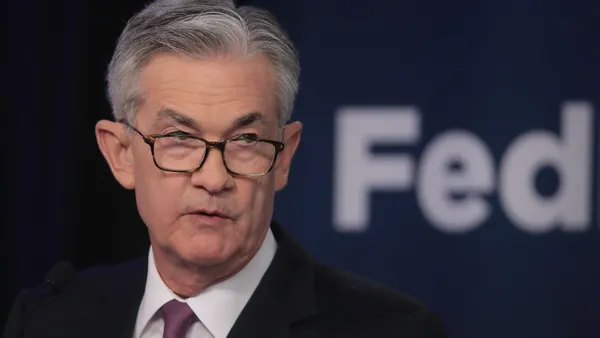Dive Brief:
-
In the event of a new presidential administration, most executives are likely to increase investments in tax scenario planning, PwC's Road to Election 2020 Pulse Survey, which surveyed 578 CFOs and other C-suite leaders, found.
-
Regardless of the results of the November election, 70% of respondents agreed business tax rates will rise to pay for COVID-19 relief, and 63% say trade restrictions between the U.S. and China will increase. Their views likely reflect concerns that "eventually, there will be a price to pay for the increase in federal spending, tax deferrals and other forms of relief," PwC said.
-
Many executives desire additional federal support, with 95% saying some type of policy action is needed for the U.S. economy to help recover from the economic effects of the pandemic. Also, 39% of CFOs surveyed say the federal government should implement a strategy to boost domestic production of essential goods to bolster the economy.
Dive Insight:
The survey aimed to ascertain the general election's impact on the C-suite's business outlook. In the event of a Biden administration, executives will likely increase efforts around tax planning in anticipation of changes to U.S. corporate tax and other tax policies.
Alternatively, if President Donald Trump wins a second term, more executives are likely to increase supply chain investments, in light of trade tensions with China.

"There is resounding support among the C-suite for more from Washington to help boost the economy and improve the business environment," Tim Ryan, PwC U.S. senior partner and chairman said. "But executives are very focused on things they can control: revenue strategies, digital transformation, and handling culture and development at the same time."
As they look toward the November election, Ryan said the survey respondents are engaging in more and more scenario planning in an effort to "emerge stronger from any policy shifts that may affect their bottom line."
Additionally, Ryan said, in light of the recent M&A upswing following several slow months, companies with excess capital are looking to put it to work.
"Companies want to pay, and we're starting to see M&A activity pick up," he said.
Even so, when it comes to things executives can't control, like geopolitical risk and supply chain interruptions, they nonetheless are making plans on how they'd react should things go off course.
"A federal strategy to combat the pandemic is vital," Roz Brooks, PwC's U.S. public policy leader said. "Regardless of which party wins, 70% of respondents agree business tax rates will rise to pay for COVID-19 tax-based relief."
Ninety-five percent of respondents say some type of fiscal COVID-19-related policy support is needed both for the U.S. economy (95%) as well as for their businesses (78%).
As companies have adapted to the new normal, revenue forecasts have markedly improved, but 56% of CFOs and other C-suite respondents still expect a dip in revenue over the next 12 months. However, 28% expect an increase over the same period.












